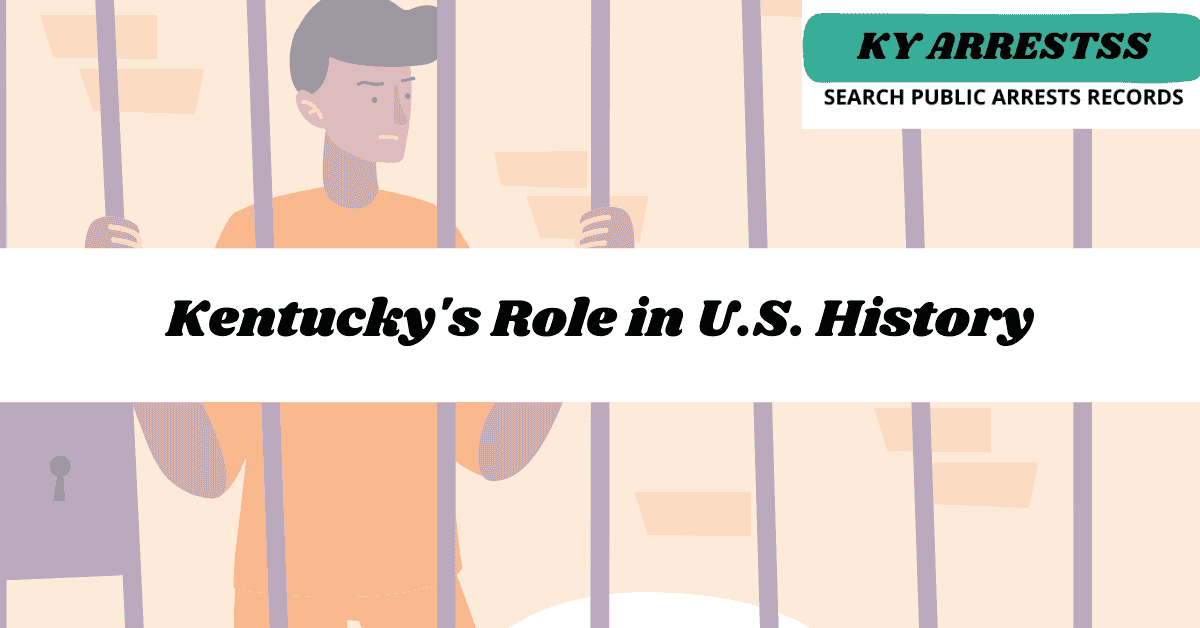Kentucky’s Role in U.S. History
Kentucky, often dubbed the “Bluegrass State,” boasts a rich and diverse history deeply intertwined with the fabric of the United States. From its Native American roots to its pivotal role in pivotal moments like the Civil War and beyond, Kentucky’s influence on American history is profound and multifaceted.
Native American Presence
Long before European settlers arrived, Kentucky was home to various Native American tribes, including the Cherokee, Shawnee, and Chickasaw. These indigenous peoples inhabited the region for centuries, leaving behind a legacy of culture and heritage that still resonates today.
Exploration and Early Settlement
The first Europeans to explore Kentucky were French traders and explorers in the 17th century. However, it was Daniel Boone’s legendary exploration and settlement of the region in the late 18th century that paved the way for Kentucky’s rapid growth and development. Boone’s establishment of Boonesborough in 1775 marked the beginning of European settlement in the area.
The American Revolution
During the American Revolution, Kentucky played a crucial role in the fight for independence. Its strategic location and abundance of resources made it a hotly contested territory between American settlers and British forces. Figures like Daniel Boone and George Rogers Clark led expeditions and skirmishes that ultimately secured Kentucky’s place within the fledgling United States.
Statehood
Kentucky officially became the 15th state of the Union on June 1, 1792, following the adoption of its first state constitution. This milestone marked the culmination of years of pioneering spirit and perseverance by Kentucky’s early settlers, solidifying its place as an integral part of the United States.
The Civil War
The Civil War deeply divided Kentucky, reflecting the nation’s broader conflict. While the state officially declared neutrality at the outbreak of the war, it ultimately sided with the Union. However, Kentucky’s loyalties were split, with many of its citizens fighting for the Confederacy. Key battles such as Perryville and Mill Springs were fought on Kentucky soil, leaving a lasting impact on the state and its people.
Abraham Lincoln
Kentucky holds a special connection to Abraham Lincoln, the 16th President of the United States. Born in a log cabin near Hodgenville, Kentucky, Lincoln spent his formative years in the state before moving to Illinois. His legacy as the Great Emancipator and his contributions to American history continue to be celebrated in Kentucky and beyond.
The Bourbon Industry
Kentucky’s bourbon industry is world-renowned, with distilleries scattered throughout the state. The production of bourbon has not only contributed to Kentucky’s economy but has also become an integral part of its cultural identity. From the rolling hills of the Bluegrass Region to the bustling streets of Louisville, bourbon remains a symbol of Kentucky’s craftsmanship and tradition.
The Civil Rights Movement
Kentucky played a significant role in the Civil Rights Movement of the 20th century. Notable figures like Muhammad Ali, born Cassius Clay in Louisville, emerged as champions of equality and social justice. Their activism and courage helped pave the way for progress and change, leaving an indelible mark on Kentucky and the nation as a whole.
Education
Kentucky has a rich tradition of education, with institutions like Berea College leading the way in providing accessible and quality education to its students. The state’s commitment to learning and innovation has produced countless leaders and scholars who have made significant contributions to society.
Music and Culture
Kentucky’s influence on American music is profound, particularly in the realm of bluegrass music. From Bill Monroe to the Stanley Brothers, Kentucky has produced some of the genre’s most iconic figures. The soulful sounds of the banjo and fiddle echo through the hills of Kentucky, serving as a testament to the state’s cultural heritage.
Sports
Basketball reigns supreme in Kentucky, with the University of Kentucky Wildcats boasting a storied history of success. The state’s passion for the sport is unrivaled, with fans flocking to Rupp Arena to cheer on their beloved Wildcats. Basketball has become more than just a game in Kentucky; it’s a way of life.
Environmental Conservation
Kentucky’s breathtaking landscapes and natural beauty are worth preserving, and efforts to conserve the state’s environment are ongoing. From the majestic Cumberland Falls to the sprawling Daniel Boone National Forest, Kentucky’s natural wonders are a source of pride for its residents and a destination for nature enthusiasts worldwide.
Modern Political Influence
Kentucky continues to wield influence in contemporary U.S. politics, with notable politicians like Mitch McConnell and Rand Paul representing the state on the national stage. Their leadership and advocacy shape the political landscape and contribute to ongoing debates and discussions on issues of national importance.
FAQs
What was Kentucky’s role in the American Revolution?
Kentucky played a significant role in the American Revolution as it served as a vital frontier region. The settlers in Kentucky experienced constant threats from Native American tribes who were allied with the British. The Battle of Blue Licks in 1782, where Kentucky militiamen fought against Native American and British forces, was a notable event in Kentucky’s involvement in the Revolution.
How did Kentucky aid U.S. westward expansion?
Kentucky played a crucial role in the westward expansion of the United States. It was the first region west of the Appalachian Mountains to be settled by American pioneers. The fertile land in Kentucky attracted many settlers, and its strategic location as a gateway to the West facilitated further expansion into territories such as the Louisiana Purchase.
What impact did Kentucky have on the Civil War?
Kentucky’s role in the Civil War was complex due to its divided loyalties. Although Kentucky declared neutrality at the beginning of the war, it eventually leaned towards the Union. However, there were Confederate sympathizers within the state, and guerrilla warfare was prevalent. Battles like the Battle of Perryville and the Battle of Mill Springs took place in Kentucky, further shaping the outcome of the war.
How did Kentucky contribute to the abolitionist movement?
Kentucky’s role in the abolitionist movement was marked by a gradual shift towards anti-slavery sentiments. While Kentucky was a slave state, there were prominent abolitionist voices, such as Cassius Clay, who advocated for the emancipation of enslaved individuals. The state’s proximity to the Ohio River also facilitated the escape of enslaved people to free states.
What role did Kentucky play in the development of bluegrass music?
Kentucky is considered the birthplace of bluegrass music. The genre originated in the 1940s and is influenced by various musical traditions, including Irish, Scottish, and African-American. Kentucky’s rich musical heritage, particularly in regions like the Appalachian Mountains, contributed to the development of bluegrass music. Renowned musicians such as Bill Monroe and Ricky Skaggs hail from Kentucky.
Conclusion
Kentucky’s role in U.S. history is vast and varied, spanning centuries of triumphs and challenges. From its Native American roots to its modern-day political influence, Kentucky’s contributions to American society are undeniable. As we reflect on the past and look towards the future, it’s essential to honor and celebrate the legacy of Kentucky and its people







